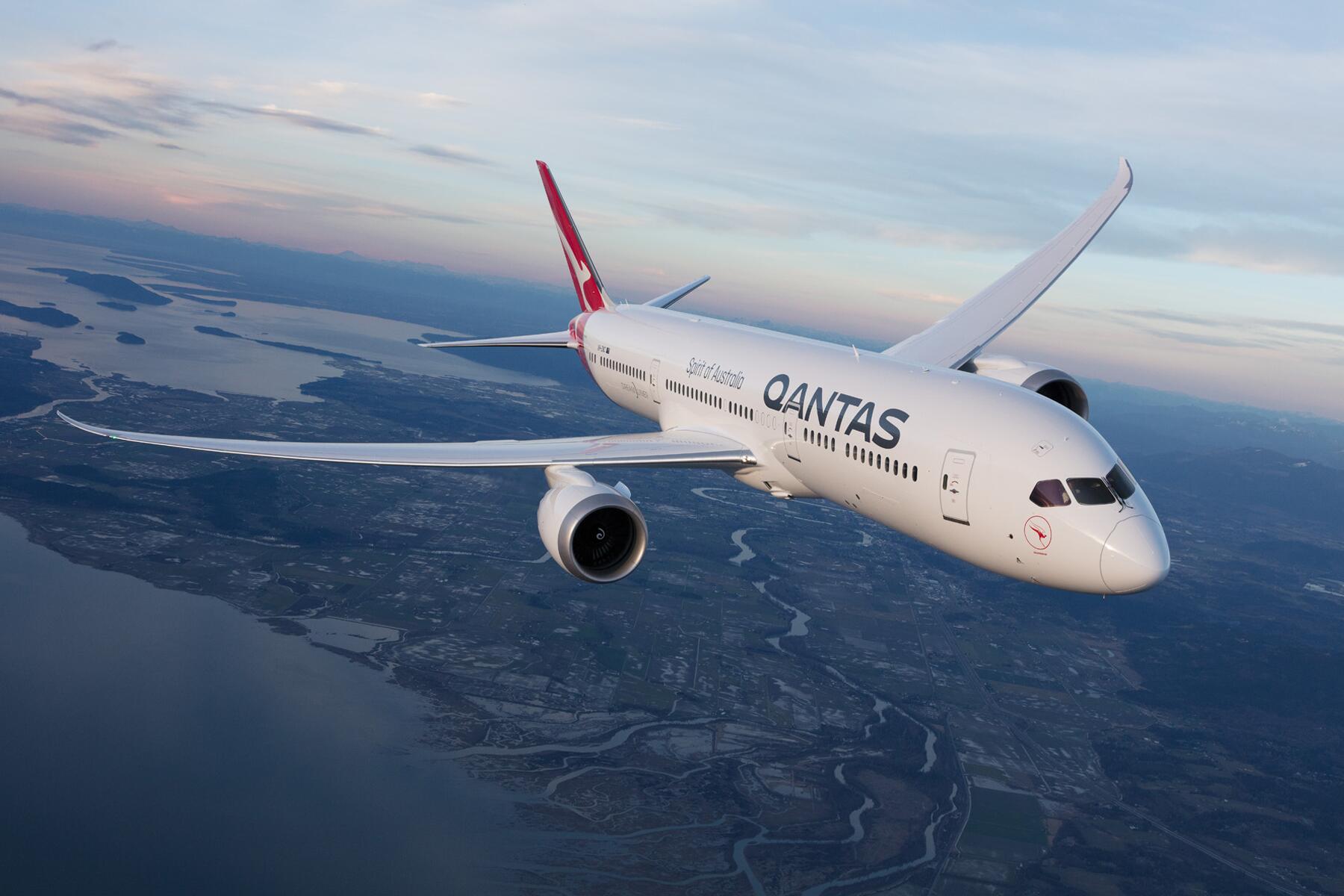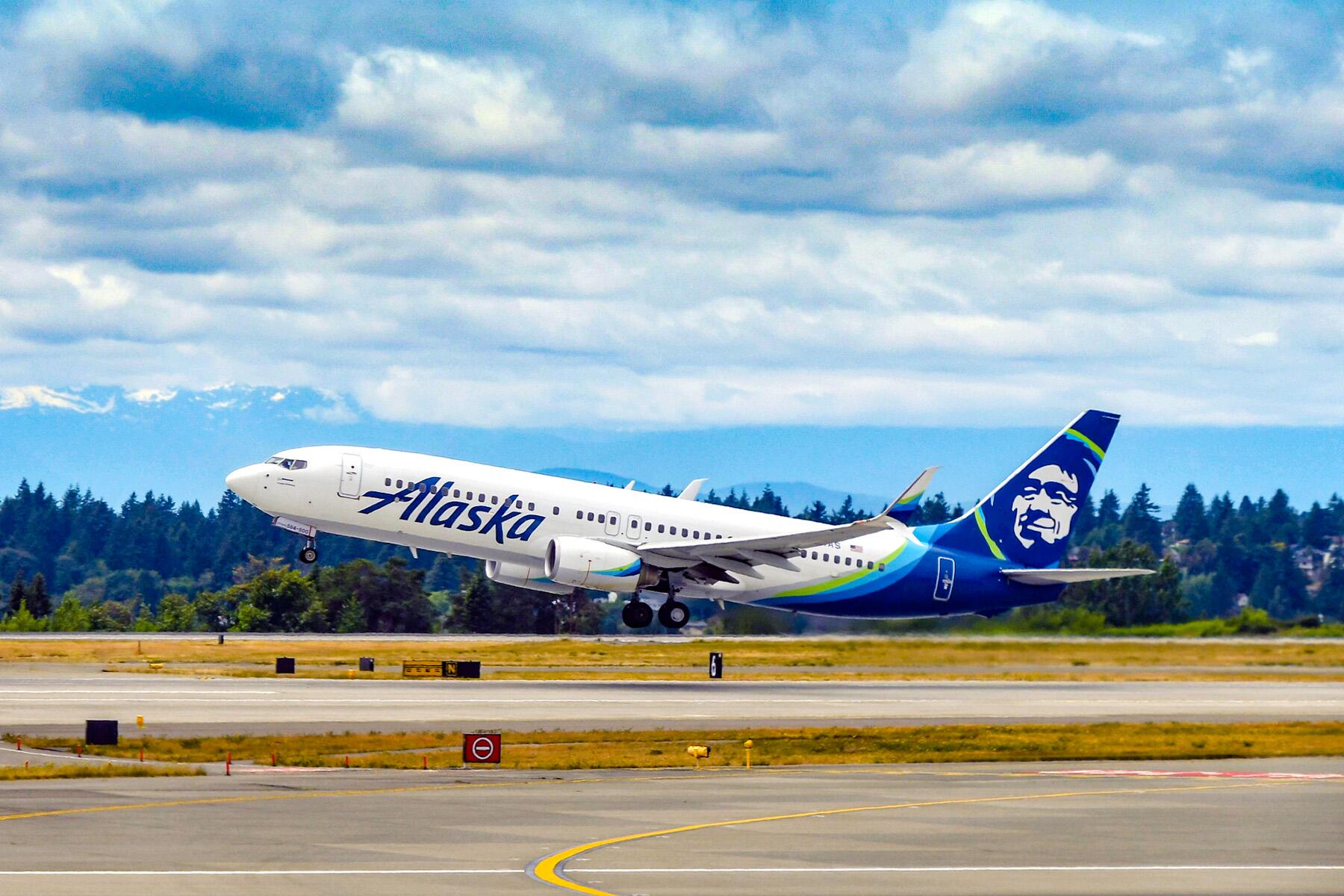Alaska Airlines piloted its own program to incentivize SAF purchases in late 2023, and now rolls the program out in perpetuity following positive response from passengers.
Alaska Airlines is launching a new incentive for passengers to support cleaner aviation fuels. Travelers booking flights on the carrier’s website now have the option to purchase Sustainable Aviation Fuel (SAF) credits when they purchase their tickets. Alaska Mileage Plan members will earn Elite Qualifying Miles (EQM) toward elite status for their purchases at the rate of 500 EQM per $100 spent on SAF credits.
Mileage Plan members can earn up to 5,000 EQM per calendar year by purchasing SAF credits. The first tier of elite status with Alaska Mileage Plan—MVP or “Most Valuable Passenger”—starts at 20,000 EQM. MVP status with Alaska Airlines brings benefits such as upgrades, more seats available for assignment, free checked bags, and priority boarding. Alaska Mileage Plan MVP members also earn tier status in the Oneworld Alliance.
What Is a SAF Credit?
Sustainable Aviation Fuel is made from waste products like cooking oil instead of fossil fuels refined from crude oil. It’s renewable, but it also produces lower carbon emissions when burned. In the limited quantities in which it’s already used, SAF is mixed with regular aviation fuel, using less of that non-renewable resource, and tapping down slightly on carbon emissions for the flight.
Recommended Fodor’s Video
The industry is nascent, so SAF isn’t currently available enough—or cheap enough—for more widespread application as aviation fuel for the country’s airlines. SAF is currently used on a miniscule portion of flights from select few airports.
SAF credits are essentially an investment in the SAF industry itself, funding expansion and helping make the fuel more readily available in more airports for more flights. The credits are a way for passengers to voluntarily support the development of cleaner fuels for future flights.
The amount of the credit purchased is based on a chosen percentage of the purchased flight’s expected carbon emissions. Alaska passengers can choose to base their SAF purchase on a 5%, 10%, or 25% rate of the expected impact of their flight.
Introduction of SAF in the United States is still voluntary. French airlines are obligated to incorporate at least 1% SAF on all flights departing France. Air France reports this represents an additional annual cost of around €30 Million, which they pass along to customers in the form of a surcharge on ticket prices. In addition to this, members of the Air France/KLM loyalty program Flying Blue have been able to purchase SAF credits to earn credit toward elite status since 2022.
What About Carbon Offsets?
Carbon offsets, which many airlines previously offered, work a bit differently. Many of those projects were designed to offset carbon emissions by supporting projects that would reduce carbon emissions in other areas, like preventing deforestation, or reforestation, where new trees are planted. Those schemes came under scrutiny, however, saying that many of the projects were never implemented (in spite of having been funded by offsets) and failed to actually reduce emissions.
The idea was that air travel was an industry that wasn’t likely to effectively reduce actual emissions to the necessary level, so offsets would be required to make up the balance. Unlike carbon offsets, however, SAF credits are an investment in directly reducing carbon emissions by helping make the lower-carbon fuel options more readily available—ostensibly before government regulation forces the additional cost on all airline passengers.
Some European carriers also ran afoul of EU consumer protection regulations because of how they talked about carbon offsets. Earlier this year, a Dutch court ruled that KLM’s sustainability promises were too vague, and misleading enough that they caused actual harm to consumers, although the complaints were largely directed at billboard and poster advertising, rather than solicitations to purchase carbon offsets.
Alaska Airlines piloted its own program to incentivize SAF purchases in late 2023, and now rolls the program out in perpetuity following positive response from passengers. The airline has also taken care to implement specific criteria for their SAF program, such as the stipulation that the fuel not be sourced from edible feedstock, sources that compete with food production, or whose production contributes to deforestation (e.g. the clearing of forests in the Amazon Basin to grow soybeans used for cooking oil that is later used to produce SAF).
Alaska Airlines currently uses a limited amount of SAF from a single supplier on flights departing from San Francisco International Airport. New SAF suppliers are expected to come online in 2025 and 2026.




